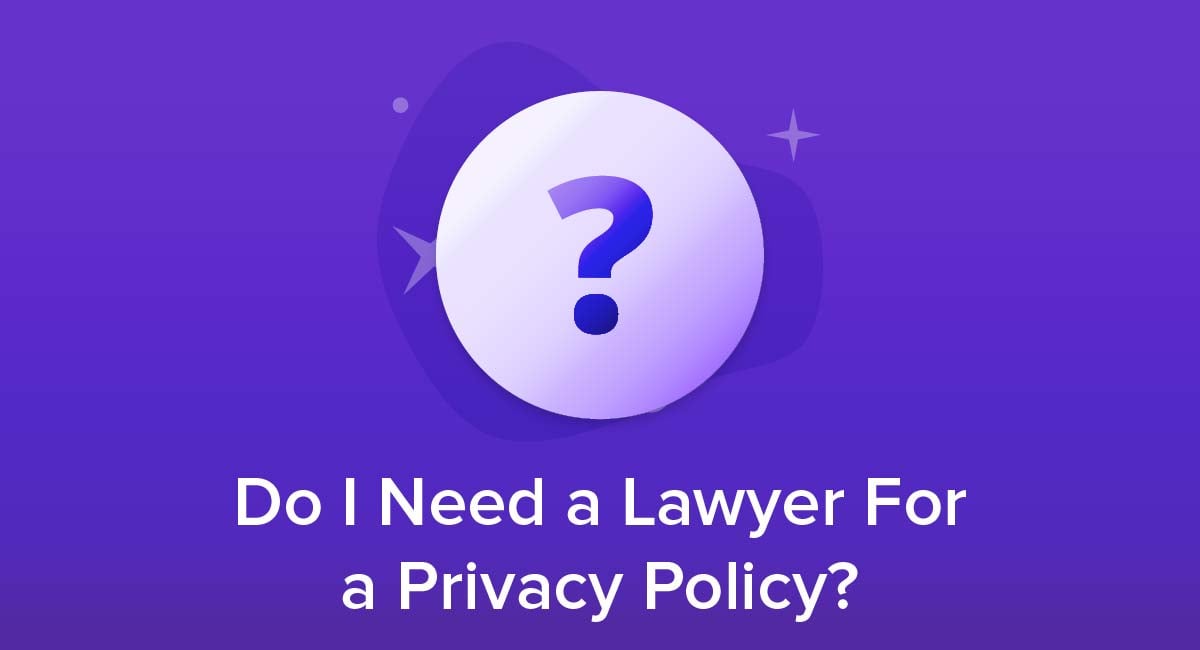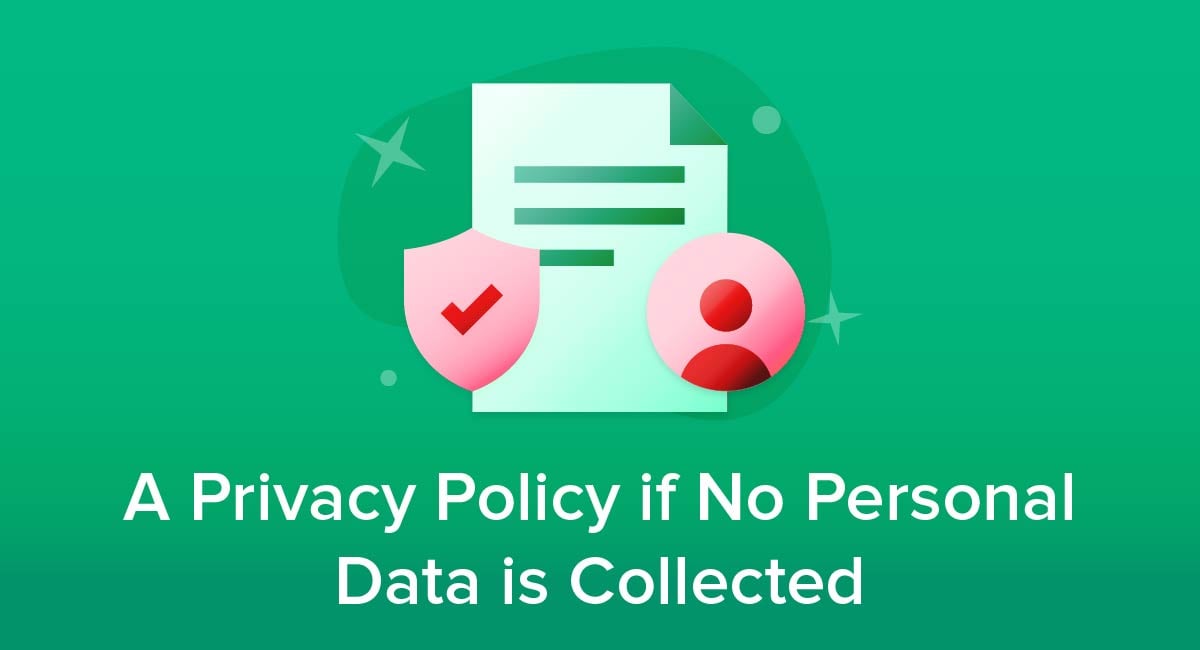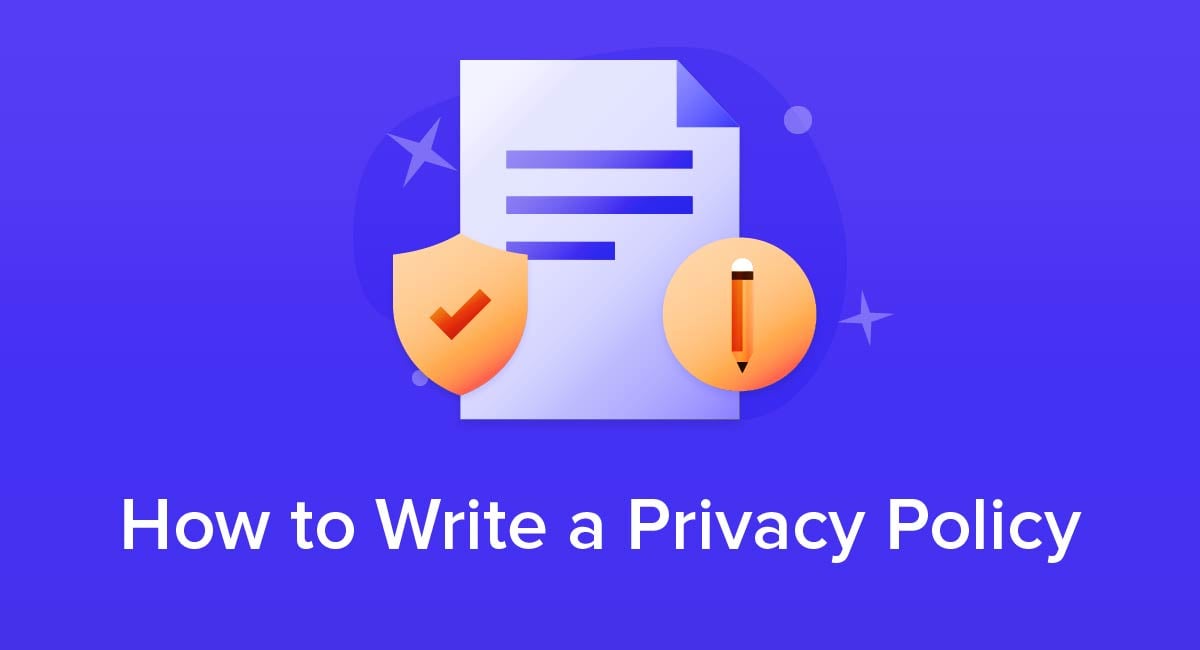
If you handle any personal information, you legally need to have a Privacy Policy. While this is a legal document, you don't necessarily need to have a lawyer write it. Alternative methods such using a Privacy Policy generator could be more suitable depending on your business.
Here's what you need to know about whether or not a lawyer is required for a Privacy Policy, alternative methods to create a Privacy Policy, and the pros and cons of using a lawyer.
- 1. Is a Privacy Policy Legally Required?
- 2. Is it a Legal Requirement to Have a Lawyer Write a Privacy Policy?
- 3. What are the Pros of Using a Lawyer to Write a Privacy Policy?
- 4. What are the Cons of Using a Lawyer to Write a Privacy Policy?
- 5. What are Some Popular Alternatives to Using a Lawyer to Write a Privacy Policy?
- 5.1. Use a Privacy Policy Generator
- 5.2. Use a Privacy Policy Template
- 5.3. Write a Privacy Policy Yourself From Scratch
- 5.4. None
- 6. What Factors Should I Consider When Deciding if I Need a Lawyer for a Privacy Policy?
- 6.1. What Countries You Serve/Is Your Business International?
- 6.2. What Types of Data You Handle
- 6.3. How Much Data You Handle
- 7. Summary
Is a Privacy Policy Legally Required?
A host of state, federal and international laws require a Privacy Policy when personal information is collected or used.
Even if you don't collect or process personal information, you should still have a Privacy Policy since users are used to seeing one and not having one can make you seem untrustworthy.
Is it a Legal Requirement to Have a Lawyer Write a Privacy Policy?
No, it is not a legal requirement to have a lawyer write your Privacy Policy. Privacy laws are concerned with what information you publish and, in some instances, how you present it. They are not concerned with how you produce the Privacy Policy.
What are the Pros of Using a Lawyer to Write a Privacy Policy?
Using a lawyer to write your Privacy Policy has several benefits:
- It will give you peace of mind
- You may be able to hire a lawyer with expert, specialist knowledge of data laws
- A skilled lawyer can write a comprehensive document that complies with multiple privacy laws while still being readable
What are the Cons of Using a Lawyer to Write a Privacy Policy?
Using a lawyer to write a Privacy Policy comes with several drawbacks:
- It can be expensive, particularly if you hire a privacy law specialist rather than a general lawyer
- You may need to pay the lawyer for ongoing reviews of your data handling practices and thus for updates to your policy
- You may need to pay the lawyer for ongoing reviews of how changes to privacy laws affect your policy and thus for updates to your policy
- Some lawyers write documents in a way that isn't reader-friendly. This could create a bad impression with customers.
What are Some Popular Alternatives to Using a Lawyer to Write a Privacy Policy?
Let's explore some of the main options for producing a Privacy Policy other than hiring a lawyer.
Use a Privacy Policy Generator
A Privacy Policy generator is a good option in many cases, balancing costs with confidence and peace of mind. A well-designed generator will ask you multiple questions to figure out which laws affect you and thus what information needs to be in your Privacy Policy.
It will then prompt you for all the relevant details needed and present you with a compliant, well-organized and clearly written policy, ready to use.
Many generators offer ongoing reviews and updates as part of the initial plan so as laws change or your data practices change, you can have your generator-produced Privacy Policy updated easily.
Our Free Privacy Policy Generator helps you create a custom Privacy Policy for your website and mobile app. Just follow these few simple steps and your Privacy Policy will be ready to display in minutes.
- Click on the "Free Privacy Policy Generator" button, located at the top of the website.
- Select where your Privacy Policy will be used:
- Answer a few questions about your business:
- Enter the country and click on the "Next Step" button:
- Continue with building your Privacy Policy while answering on questions from our wizard:
-
Almost done. Now enter your email address where you'd like your new Privacy Policy sent and click on the "Generate" button and you're done.

That's it. Now you can copy and paste your Privacy Policy code into your website, or link to your hosted Privacy Policy.




Use a Privacy Policy Template
A Privacy Policy template gives you a great base to start with. You'll get a template of pre-written text that you can use to insert your own unique and custom details.
A template can be useful and affordable for most business cases. However, you will need to be aware of anything the template may be missing, such as law-specific requirements and clauses that you need to include, that the template may not have.
Privacy Policy templates are best for basic companies with very straightforward and simple data practices.
Write a Privacy Policy Yourself From Scratch
You can always write a Privacy Policy yourself. You'll find plenty of guides and suggestions online and this will give you complete control over what you publish.
However, this poses issues that may not be worth enduring, such as knowing exactly what privacy laws apply to your business, and what their compliance requirements are.
You may not be aware of these things, and taking time away from your business to try to quickly and thoroughly learn the law well enough may not be worth it or even feasible.
Copy Another Business's Privacy Policy (Don't Do This!)
You may be tempted to simply copy another company's Privacy Policy and change the details, particularly if you think it was written by a lawyer. This is a terrible idea.
Firstly, this is likely to violate copyright laws and could lead to legal problems. Secondly, there's no guarantee that the other company has the same data practices or falls under the scope of the same data laws (including any exclusions) as you do. In fact, it's almost guaranteed that your data practices will differ in ways.
While a Privacy Policy may be legally valid for the other company, there's no guarantee it is legally valid for your situation.
What Factors Should I Consider When Deciding if I Need a Lawyer for a Privacy Policy?
Here are some factors to weigh up when deciding if a lawyer-written Privacy Policy is best for you.
What Countries You Serve/Is Your Business International?
The more countries and states in which you operate, serve customers or process data, the more likely it is you'll fall under the scope of multiple data privacy laws. A lawyer may be more suitable if your business operates all around the world and thus your Privacy Policy needs to comply with a wide range of laws with differing requirements.
Here's an example of how a Privacy Policy needs to include region-specific legal information, from Stitcher:
If you transfer data to countries other than where you and the person the data is about are based, the law can become more complicated.
Data laws often require you to guarantee the data will continue to be protected to the same standards. This could mean having a contract with whoever you transfer the data to. It could also mean checking if the other country has a legal agreement with the country whose privacy laws you will fall under.
If you regularly transfer data to other countries, a lawyer may be more useful when drafting your Privacy Policy.
As Go Compare shows, you may need some specific and complicated Privacy Policy terms:
go-compare-privacy-policy-international-data-transfer-clause
Go Compare Privacy Policy: International Data Transfer clause
What Types of Data You Handle
Privacy Policy requirements are often stronger if you are handling sensitive data. Definitions vary, but often include health information, financial data and data related to personal beliefs, religion and sexuality.
Not only are data rules often tougher with sensitive data, but the penalties for breaches can be more substantial. A lawyer could make sense if you deal with a lot of sensitive data.
If you deal with data of children, You may face extra requirements or fall under the scope of additional laws. You may also need to get parental consent to collect data or face restrictions on sharing or using the data. If you handle a significant amount of data about children or they are your primary audience, having a lawyer write or review your Privacy Policy may make sense.
How Much Data You Handle
If you handle an immense amount of data from a large number of users, you may want to consider hiring a lawyer to help with your Privacy Policy. This is because as the amount of data you collect and process goes up, the risk of issues stemming from this also increases.
Having a lawyer address all the different types of data you handle will help make sure that you don't miss any regulations or requirements pertaining to any of it.
Summary
Many countries and states have data laws that require a Privacy Policy. None of these laws say you must get a lawyer to write a Privacy Policy. This means you only have to consider whether doing so is a practical necessity rather than a legal one.
Using a lawyer can give you peace of mind if your Privacy Policy requirements are particularly complicated, but it can be expensive.
Other options include using a Privacy Policy generator, using a Privacy Policy template, or writing it yourself.
Using a Privacy Policy generator is often the best all-round approach to make sure you include all the necessary detail to cover the relevant laws for your specific situation.
Whatever you do, never simply copy another company's Privacy Policy.
Situations where it sometimes (but not always) makes more sense to use a lawyer to write or review a Privacy Policy include when you:
- Handle sensitive data
- Handle a large amount of data
- Have an international business


